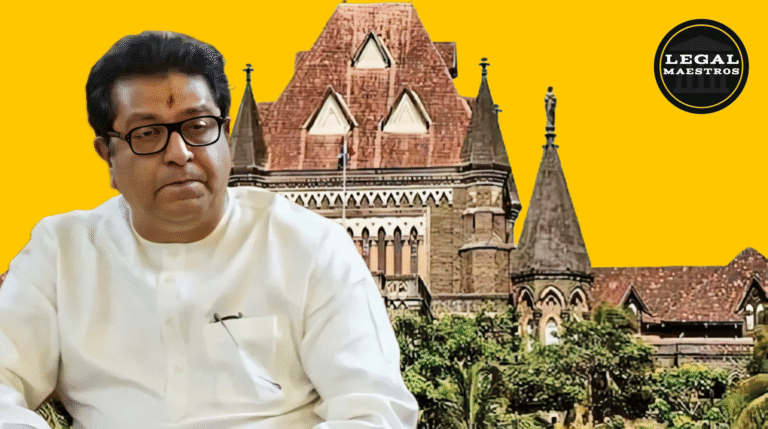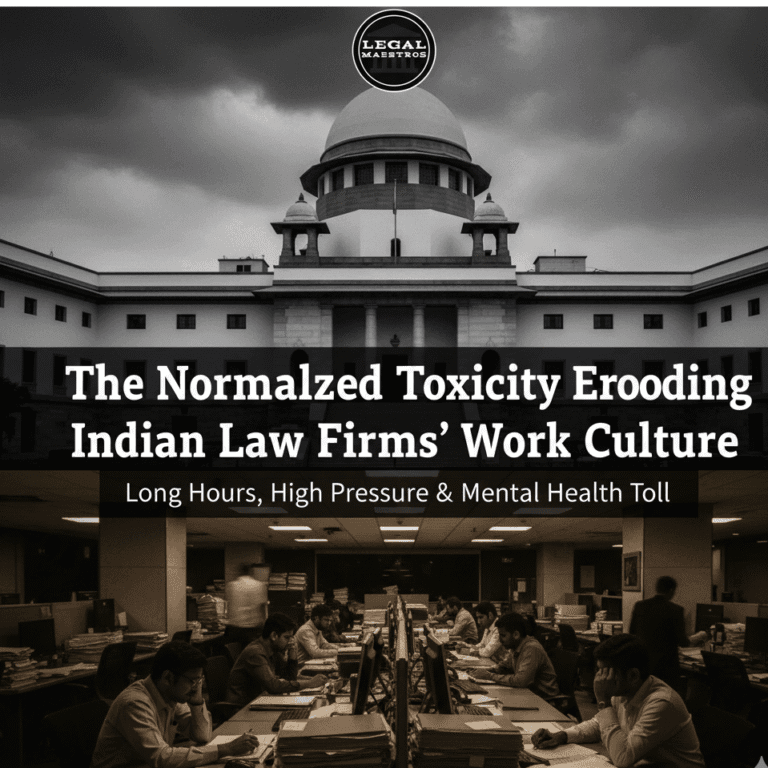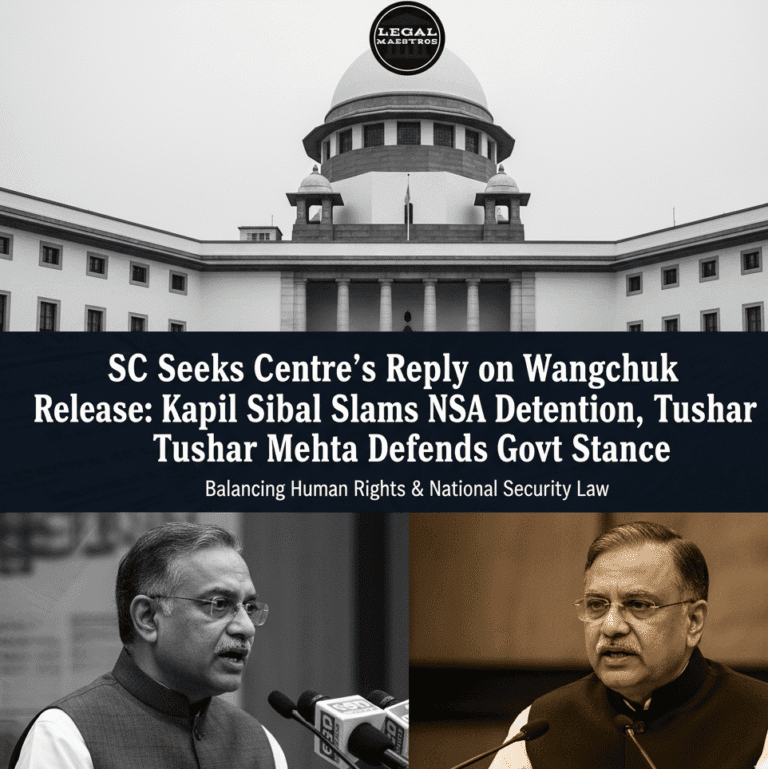
Khula and the Background of the Case.
The case of Mohammed Arif Ali vs. Smt. Afsarunnisa and Another, passed on June 24, 2025, by the High Court of the State of Telangana at Hyderabad throws much light as to the finer touches of the component of Khula division under the Muslim Personal Laws in India.
It was on the basis of appeal to February 6, 2024, based on an order of the Family Court, Hyderabad, which dismissed the petition under Section 13 of the Hindu Marriage Act, 1955 filed by Mohammed Arif Ali (the husband) seeking a declaration that his marriage to Smt.
The Sada-E-Haq Sharai Council (Respondent No. 2) had rendered Afsarunnisa (the wife) null and void. The gist of the conflict was the power of a non-governmental association to issue a divorce certificate and whether Khula’s divorce made by the wife was valid.
For any queries or to publish an article or post or advertisement on our platform, do call at +91 6377460764 or email us at contact@legalmaestros.com.
As the facts of the case indicate, Mohammed Arif Ali and Smt. Afsarunnisa got married on June 1, 2012. About five years in, the marriage relationship went bad to the extent that the wife claimed that the husband was beating her up and engaging in violence.
After a serious beating on July 7, 2017, which sent the wife to the hospital, she went to live with her parents. Later she advised her husband to grant her a Khula divorce which he denied. Being refused in this way Smt. Afsarunnisa turned to the Sada-E-Haq Sharai Council, which consisted of men learning about Muslim Law, and was numbered a Mufti, a Professor of Islamic Studies, a Professor of Arabic and the Imam of a Mosque. In trying to reconcile, the Council wrote three times to the husband, calling him to a meeting, but he objected that they had not been given authority over his person and declined to come. The Council therefore, on October 5, 2020, gave a “Khulanama” (Divorce Certificate) to the wife certifying the divorce from the marriage.
The husband subsequently registered an Original Petition in the Family Court, Hyderabad, to annul the Khulanama and this petition was rejected by the Family Court resulting in this appeal.
For any queries or to publish an article or post or advertisement on our platform, do call at +91 6377460764 or email us at contact@legalmaestros.com.
The meaning of Khula Divorce
Another important form of abrogation of marital union in Muslim law is Khula, an Arabic word that linguistically denotes severance, yet by extension refers to dissolution of marital union. Khula is usually initiated by a wife. In making the judgment, it gives the understanding that Khula is a way in which the wife can end the marital bond and it may be resolved privately, usually with reference to the Mufti.
A mufti gives an advisory ruling, a fatwa, which is founded on the Shariat (Islamic law) of his/her school of thought. Although the wife might give something in exchange like waiving her right to Mahr (dower) this is not a pre-condition for Khula. More importantly, the judgment underlines that the right of a wife to Khula is not treated any differently from the right of a husband to Talaq (divorce) and it, in effect, is an “unconditional” divorce.
Quran, Chapter II verse 229 is quoted to support the idea of Khula, which entails the fact that a woman is allowed to ransom herself when both parties suspect that they are not able to observe the boundaries prescribed by Allah anymore.
For any queries or to publish an article or post or advertisement on our platform, do call at +91 6377460764 or email us at contact@legalmaestros.com.
Khula is also defined as wife-sought dissolution of marriage by different authoritative literature on Mohammedan law. One of the major differences brought out is that; unlike Mubaraat divorce which is Fiat and therefore voluntarily initiated by the couple, Khula is initiated by the sole desire of the wife to get out of the marriage union.
The Court and Khula and the Muftis
The authority aspect of a Mufti and a Qazi on Khula has been examined in the case. Under the clear judgment, one of them is that, even though a Mufti is warranted to provide an advisory opinion (Fatwa), the opinion which he provides is not binding.
One would think that it would be settled privately. However, when a suit is filed, the same is determined by a judge (Qazi) who is appointed as per the Shariat by a State and his decision is final (Qaza). This distinction is significant: Fatwa is non-binding whereas Qaza is binding.
For any queries or to publish an article or post or advertisement on our platform, do call at +91 6377460764 or email us at contact@legalmaestros.com.
Here, the husband argued that Sada-E-Haq Sharai Council which was not a law courts body but a society was not expected to issue a divorce certificate.
In spite of the fact that the court acknowledged the Khulanama of the Council as an advice bit the court still maintained the dissolution of the marriage based on the wife’s right to Khula which was thereafter ratified by the Family Court.
The case of the judgment refers to the case law of the Supreme court which resurrects the fact that the decision reached by religious functions is not binding and does not operate with the force of the law.
For any queries or to publish an article or post or advertisement on our platform, do call at +91 6377460764 or email us at contact@legalmaestros.com.
Law Perspectives for Khula
The High Court carefully laid down the prevalent four approaches to Khula on the basis of different precedents.
The first strategy, which is illustrated in such a case as Masroor Ahmed Vs. Juveria Abdul Majid Patni Vs. State (NCT of Delhi). According to Atif Iqbal Masoori, Khula is a personal settlement and a decision given by a Mufti (in its advisory capacity) can make this settlement possible.
In case private settlement is not achieved a Qazi/Judge provides a binding judgment. Here the consent of the husband is not a condition sine qua non to the validity of Khula. He can however bargain to get back down.
For any queries or to publish an article or post or advertisement on our platform, do call at +91 6377460764 or email us at contact@legalmaestros.com.
The second method, to which a Division Bench of Kerala High Court has paid attention in XXXXX Vs. The case XXXXX (MAT Appeal No. 89 of 2020) points out that Khula which is the right of a woman is the reciprocation of the right of Talaq by a man.
It states that a married woman may dissolve the union unilaterally by seeking a divorce and unlike the Talaq, the last voice rests on the wife in a Khula. They still expect reconciliation efforts, but the husband has no powers to force her to remain in the marriage.
The third strategy which is evident in the case of the Review Petition of Kerala High Court (AIR 2023 KR 33), serves further to support the fact already said that any woman does not require the approval of the husband to invoke the Khula and also does not require going to the court in case of denial by the husband. Under this approach, it is explained that there is no need for consent from the husband in order to invoke the Khula.
For any queries or to publish an article or post or advertisement on our platform, do call at +91 6377460764 or email us at contact@legalmaestros.com.
The fourth is the concept of integrating Muslim Personal Law with the Indian Constitution. In the case of Shayara Bano Vs. Shamim Ari Union of India, this is the approach in the State of U.P., where it has been emphasized that no man should make a woman feel like a married person against her free will.
That is why the refusal of the wife by the husband to give her Khula is considered theologically incorrect and legally impossible.
Some Major Doctrines and Conclusion
The general verdict in all these legal statements is that the Khula is a no-fault divorce that is instigated by a Muslim woman. When a request is made to the Khula, the husband can, first of all, settle the situation by returning the dower, or a part of it, but he cannot just deny the Khula on the basis that the wife refused to give him back the dower.
For any queries or to publish an article or post or advertisement on our platform, do call at +91 6377460764 or email us at contact@legalmaestros.com.
Khula is conceived as a non-conflictual form of divorce, privately negotiated in a manner that should be attempted after having tried to save the marriage.
Probably the most significant lesson of the judgment is the fact that going to a Mufti to obtain a Khulanama is not a requirement and a Fatwa provided by a Mufti is not an official one as well. But in case of disagreement between the husband and the Khula or the Khulanama, the husband can approach the Family Court to be adjudicated.
The task of the Family Court thus becomes to give a judicial seal to the end of the marriage which makes the divorce binding to both of the parties. The inquiry that must be made by the Family Court must be summary in nature where it should be enquired whether the demand of Khula is legitimate, whether reconciliation attempts were made and whether the wife offered to return any of the dower.
For any queries or to publish an article or post or advertisement on our platform, do call at +91 6377460764 or email us at contact@legalmaestros.com.
The High Court in the instant case concurred with the decision of the Family Court to dismiss the petition of the husband. The fact as argued by the husband of lack of authority of the Sada-E Haq Sharai Council to give a divorce that would have been recognized by the Courts was taken into consideration but the husband was informed that the Family Court had ruled in its own way that the marriage was over and dissolved.
The High Court made it clear that two of the requirements that the Family Court had formulated, namely points 4 and 5 ( namely that the wife should come to Mufti/Qazi for Khulanama in case the husband refuses and that only then should the husband file a case in case Khulanama is not acceptable) were not compliant with the law set by courts because the opinion of Mufti is advisory and is not binding.
Finally, the ruling cements that the right of the Muslim wife is to demand khila. The shift of the conflict to the court level indicates that the judgment of the court on the state of the marriage is the one conferring an end and legality.
For any queries or to publish an article or post or advertisement on our platform, do call at +91 6377460764 or email us at contact@legalmaestros.com.
It is a statutory decision which constitutes the progressive understanding of Khula that empowers Muslim women to unilaterally terminate their marriages and the court will be the final authority which provides a formal position to such decisions.








1 thought on “Telangana High Court Affirms Muslim Woman’s Absolute Right to Divorce via Khula Without Husband’s Consent”